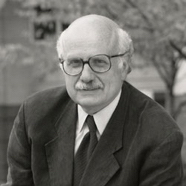“The Supreme Court Four”
 A clear-eyed look at the performance of four conservative Justices during the Supreme Court’s oral argument in Trump v. United States last week shows a remarkable lack of interest in former President Trump’s alleged efforts to steal the 2020 presidential election, which is what this case is about.
A clear-eyed look at the performance of four conservative Justices during the Supreme Court’s oral argument in Trump v. United States last week shows a remarkable lack of interest in former President Trump’s alleged efforts to steal the 2020 presidential election, which is what this case is about.
The four Justices – Samuel Alito, Clarence Thomas, Neil Gorsuch, and Brett Kavanaugh – appeared to be more concerned about the hypothetical needs of future Presidents than about the actual case before them, which involves the nation’s first attempted coup, the first mob attack on the Capitol since 1814, and the first attack on the peaceful transfer of power, a foundational principle in our country.
Trump’s indictment for attacking our democracy was barely mentioned by “The Supreme Court Four.”
It was as if The Four did not want to even acknowledge, much less deal with, the case before them. As Justice Alito stated, “I’m not discussing the particular facts of this case.”
The two other conservative Justices that make up the Court’s majority – Chief Justice John Roberts and Justice Amy Coney Barrett – took different tacks.
Chief Justice Roberts held back for the most part, apparently leaving room for him to forge the majority to decide the case.
The Court had posed the following question for this case: “Whether and if so to what extent does a former President enjoy presidential immunity from criminal prosecution for conduct alleged to involve official acts during his tenure in office.”
Justice Barrett diverging from The Four, recognized that much of the Trump indictment deals with his campaign-related acts, which were “private” and not “official” acts. Justice Barrett raised the idea of whether the Special Counsel could just drop Trump’s official acts from the case and proceed swiftly on only the private acts.
There is no mention in the Constitution of immunity for a President or former President.
The Founders knew they could provide immunity for a President in the Constitution if they wanted to. They did not.
They expressly gave immunity to Members of Congress for actions taken in Congress, through the Speech and Debate Clause. But, the Founders had just gotten rid of a King, and they didn’t want to create another one in the form of a President who was above the law.
The ability to have Trump stand trial before the election – and let citizens know before they vote whether he is a convicted felon for his attack on democracy – has been undermined by the Supreme Court from the very start of its involvement.
In December, after federal district court Judge Tanya Chutkan ruled that Trump was not entitled to immunity, the Supreme Court refused to take the case directly on appeal.
When the immunity issue finally reached the Court months later, the Court did not treat it as a special case requiring speedy action, as it has done for other special cases, including the Colorado primary ballot case in which the Court ruled quickly and favorably for Trump.
Instead, the Court has, so far, taken a relatively leisurely approach to the immunity case. And unless the Court issues an opinion by late May – in the same quick 25-day timeframe the Justices took after oral argument in the Colorado case – it’s unlikely that the Trump trial can occur before the November election.
The Justices during oral argument showed little interest in Trump’s claim of absolute immunity for acts he undertook while President. It’s expected that the case will be sent back to the district court with instructions to conduct additional proceedings to determine which actions in the indictment are official acts subject to immunity and which are private acts that are not eligible for immunity.
Any determination by the district court might then be appealable and could end up back at the Supreme Court.
And, that will take even more time.
All of this will give Trump exactly what he wants – ever-lengthening delay to ensure a trial won’t occur before the election and, if he wins, never at all.
We know this. And, the Justices know this.
Ironically, while Trump argues that he deserves immunity for actions he took while President, it’s an immunity he would prefer not to extend to President Biden. As The New York Times noted this week, Trump, if elected, “has explicitly warned of his intent to use the legal system as a weapon of political retribution, with frequent declarations that he could go after President Biden and his family.”
President Biden has not been charged with any crimes and the House GOP’s impeachment effort has completely failed. Trump, on the other hand, faces nearly 90 counts in four criminal indictments.
Now we wait for the Supreme Court.
____________
Fred’s Weekly Note appears on Thursdays in Wertheimer’s Political Report, a Democracy 21 newsletter. Read this week’s and other recent newsletters here. And, subscribe for free here and receive your copy each week via email.